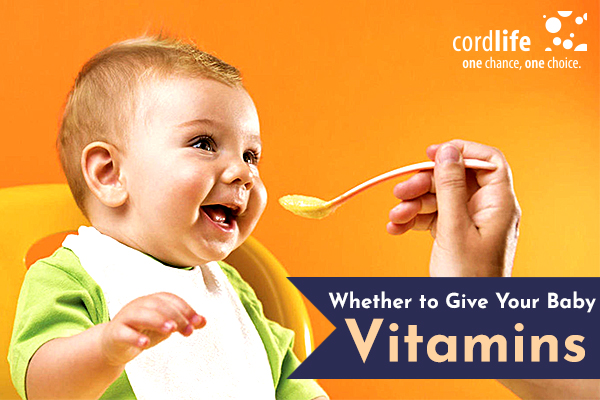Table of Contents
Parents know that the growing years of a baby has its own challenges. Everyone wants the child to grow healthy, strong and fit. And when it comes to the food and vitamins intake of your baby, you’ll probably get to hear varying views from everyone you encounter. Whether it’s your new mom buddies in the neighbourhood, your relatives, the lactation expert or even an online health news report – the versions concerning babies and vitamins will differ. When you are trying to figure out what vitamins to add to your baby’s diet, all these views can be overwhelming to decipher. However, a good place to start is by asking a crucial question – “Does your baby need any vitamin or supplement”? And that would depend to a great extent if you are breastfeeding.
The Truth About Breastfeeding
Mothers’ breastfeeding their babies assume that it’s the apt food for their babies and is replete with all the vitamins needed. Whilst it’s true that breastmilk itself carries the necessary vitamin component, it doesn’t have two core nutrients in sufficient proportion – Iron and Vitamin D. The latter is a must have for a kid for stronger bones. And iron is crucial for the development of a healthy brain and blood cells. Babies also require this mineral to avert any kind of iron deficiency and anaemia.
Babies who consume a wide mix of foods as they grow, doesn’t need any vitamins other than breastmilk. However, there can be exception to this rule. For instance, if a baby was prematurely born, small for the gestational age, low birth weight and consumes less breast milk as compared to other babies then they would need vitamins and supplements. Also, if the baby has chronic health issues that result in poor eating habits, then it is necessary to chalk out a proper vitamin intake chart for the little one.
The Health Of The Mother
In fact, when deciding on the list of vitamins that a baby needs, moms need to look into their health scenario as well! For instance, women having medical conditions like gastric bypass surgery or has been on medication on a regular basis, will absorb less nutrients from their food intake. This results in nutrient quality of the breastmilk to be low as well. Also, if you happen to following a vegan diet, inform the healthcare provider. Iron, calcium, vitamin B12, zinc and the omega-3 fatty acids are few of the nutrients that vegan moms and their babies should be working on. Alternatively, a multi-vitamin mineral supplement could be the fix.
Vitamin B12 and Fluoride
Vitamin B12 is essential for the proper development of the nervous system and reduces the occurrence of anaemia. Moms can find this vitamin in milk, milk products, eggs, poultry, meat and fish. If you don’t eat adequate animal proteins and you are breastfeeding, then it’s essential for your healthcare provider to suggest you an ongoing and proper source of Vitamin B12. This way you can ensure that your baby too is getting this supplement through you.
In the recent times there has been very less medical proof whether fluoride supplements at the time of infancy enhance baby’s dental health. The American Academy of Paediatrics suggests that all kinds of fluoride supplements should be given to the baby after 6 months. Also, it should be given to only those children who integral water source is weak in fluoride.
Summing It Up
Majority of babies get their minerals and vitamin intake from the breastmilk and post that the other supplementary edibles that go along with it, with just an exception of Vitamin D. If a baby isn’t taken to sunlight on a daily basis then the chances of Vitamin D absorption are low. Also, iron supplements are essential for preterm babies. And Vitamin B12 is a must for babies born out of vegan mothers or who experienced bariatric surgery. With this knowledge at hand you and your healthcare provider can work out the rest.
